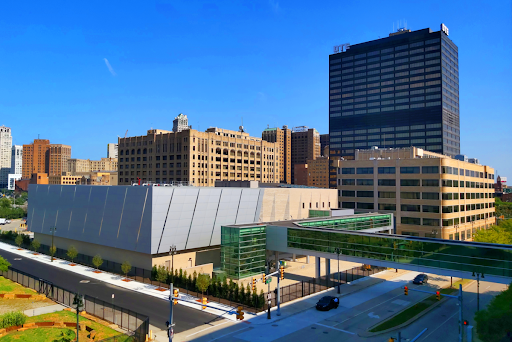A promising sign recently came in DTE’s pending electric rate case when an administrative law judge released a strongly-worded proposal for decision (essentially a recommendation for the Michigan Public Service Commission [MPSC]) finding that nearly half of the rate hike that DTE is asking for should be rejected. The judge agreed with arguments from CUB and other intervening groups that DTE’s plans for spending on the grid have essentially disregarded cost-effectiveness as a goal.
“DTE has not considered affordability in the sense of considering the burden on ratepayers of the billions of dollars of investment in the distribution system it has included in this filing,” the administrative law judge, Sharon Feldman, wrote in just one sentence that could sum up much of her criticism of DTE.
DTE is proposing to raise its revenue by $619 million, which would translate to a 13.9% rate hike for residential customers and be one of the biggest rate increases in the past few years. Under Feldman’s recommendation, however, that revenue increase would be slashed to $290 million.
Much of that $619 million is made up of spending on the distribution grid that DTE says is necessary to turn around its poor performance on electric reliability. But earlier this year CUB, in cooperation with the Michigan Environmental Council, the Natural Resources Defense Council and the Sierra Club, sponsored expert witness testimony arguing that DTE has failed to show that its spending proposals are the most cost-effective way to improve reliability. Moreover, DTE’s proposals are biased in favor of unnecessarily expensive options, such as replacing infrastructure and equipment more often than needed. The utility is able to charge customers for a rate of return on capital investments like infrastructure replacements, which is why CUB and other stakeholders scrutinize the utility’s spending plans to see if they are overlooking other measures that may not be as profitable for the utility but may more cost-effectively improve reliability.
Judge Feldman endorsed the thrust of this critique. “DTE is not seeking cost-effective ways to improve reliability. Rather, DTE’s approach appears to be to create programs for the wholesale replacement of infrastructure, and then identify the candidates for those programs, rather than prioritizing cost-effectiveness,” she wrote.
She also agreed with arguments made by our witnesses that DTE is not being credible when it refuses to provide information we have requested that would allow us to better evaluate the cost-effectiveness of the utility’s proposals. “DTE has failed to provide the information necessary to support its contentions. Its assurances that it has ‘subject matter experts’ who consider all the ‘impact dimensions’ and evaluate them properly are wholly unpersuasive on this record, when it refused to provide any of the underlying analyses sought by [Michigan Environmental Council/Natural Resources Defense Council/Sierra Club/CUB] and the Attorney General,” she wrote.
Overall, her proposal for decision is a powerful rebuke to DTE. But ultimately, the MPSC commissioners themselves will have to decide what to do with the judge’s recommendation. A decision is due later this month. Follow this case (U-21297) here.

